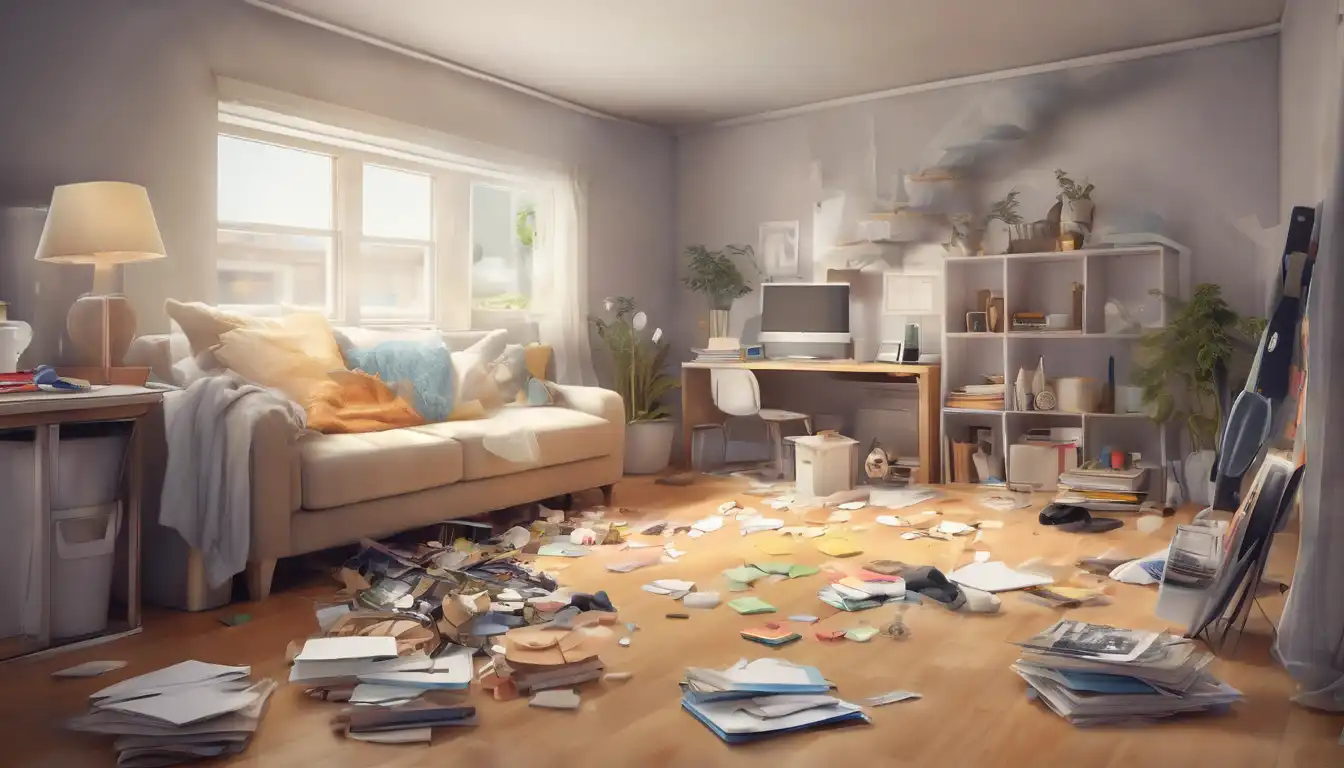Transform Your Space with These Effective Decluttering Methods
Living in a cluttered home can create unnecessary stress and make daily life more challenging than it needs to be. The good news is that decluttering doesn't have to be an overwhelming, time-consuming process. With the right approach, you can transform your living space into an organized, peaceful environment quickly and efficiently. This comprehensive guide will walk you through proven strategies that make decluttering accessible to everyone, regardless of your schedule or current clutter level.
Prepare Your Mindset Before You Begin
Successful decluttering starts with the right mindset. Many people feel paralyzed by the thought of tackling their entire home at once. Instead, focus on the benefits you'll gain: reduced stress, more efficient daily routines, and a space that truly supports your lifestyle. Remember that perfection isn't the goal – progress is what matters. Even small improvements can make a significant difference in how your home feels and functions.
Set realistic expectations for your decluttering session. You don't need to complete everything in one day. Break the process into manageable chunks and celebrate each accomplishment. This positive reinforcement will keep you motivated throughout the journey. Consider setting a timer for specific tasks to maintain focus and prevent burnout.
The Essential Decluttering Supplies You'll Need
Before diving in, gather these basic supplies to streamline your process:
- Cardboard boxes or bins for sorting items
- Labels and markers for organization
- Trash bags for disposal
- Cleaning supplies for surfaces once cleared
- Donation bags for items in good condition
Having these materials ready will prevent interruptions and keep your momentum going. Create designated stations for keep, donate, recycle, and trash items to maintain organization throughout the process.
The Room-by-Room Decluttering Strategy
Start with High-Impact Areas
Begin with spaces you use most frequently, as these will provide the most immediate benefits. The kitchen and living room are excellent starting points because they're central to daily life. Clear countertops and surfaces first – this visible progress will boost your motivation to continue.
For each room, work systematically from one corner to another. This prevents backtracking and ensures you cover the entire space. Handle each item only once by making immediate decisions about its fate. If you find yourself struggling with sentimental items, set them aside for a dedicated session later.
Tackle Closets and Storage Spaces
Closets often become dumping grounds for items we're unsure about. Use the popular "one-year rule": if you haven't used something in the past year, it's likely safe to donate or discard. Be honest with yourself about what you truly need and use regularly.
When organizing closets, implement the vertical storage principle to maximize space. Use matching hangers for uniformity and install shelf dividers to keep stacks neat. Consider implementing a seasonal rotation system for clothing to maintain manageable closet contents year-round.
The Four-Box Method for Efficient Sorting
This proven technique simplifies decision-making during decluttering:
- Keep Box: Items you use regularly and want to maintain
- Donate Box: Quality items others could use
- Storage Box: Seasonal or sentimental items for long-term keeping
- Trash/Recycle Box: Items beyond repair or usefulness
This method forces you to make concrete decisions about each possession. The key is to be ruthless – if you're keeping something "just in case," consider whether that hypothetical situation is likely enough to warrant the space it occupies.
Digital Decluttering for Modern Homes
In today's connected world, digital clutter can be just as overwhelming as physical clutter. Set aside time to:
- Delete unnecessary files and photos from devices
- Unsubscribe from email lists you no longer read
- Organize digital documents into clearly labeled folders
- Clean up your desktop and phone home screens
Digital organization can significantly reduce mental clutter and improve productivity. Schedule regular digital cleanup sessions to prevent accumulation.
Maintaining Your Decluttered Space
The real challenge isn't just decluttering – it's maintaining your newly organized space. Implement these habits to prevent clutter from returning:
- The one-in, one-out rule: When bringing something new home, remove a similar item
- Daily five-minute tidy sessions: Quick maintenance prevents buildup
- Regular donation runs: Schedule monthly trips to donation centers
- Paper management system: Handle mail immediately instead of letting it pile up
Consider adopting a minimalist approach to future purchases. Before buying new items, ask yourself if they'll truly add value to your life or simply become future clutter.
Overcoming Common Decluttering Challenges
Many people face specific obstacles during the decluttering process. Here's how to address them:
Sentimental Items: Take photos of meaningful items before letting them go. Keep only the most significant pieces and display them properly rather than storing them in boxes.
Time Constraints: Use the 15-minute method – commit to just 15 minutes of decluttering daily. These small sessions add up significantly over time.
Indecision: When unsure about an item, place it in a "maybe" box with a date three months in the future. If you haven't needed it by that date, donate it without guilt.
The Psychological Benefits of Decluttering
Beyond the physical space improvements, decluttering offers significant mental health benefits. A organized environment reduces cognitive load, allowing your brain to focus on more important matters. Many people report improved sleep, reduced anxiety, and increased productivity after decluttering their homes.
The process itself can be therapeutic, providing a sense of control and accomplishment. As you let go of physical possessions, you may find it easier to release mental and emotional baggage as well.
When to Seek Professional Help
If you're dealing with extreme clutter or find the process emotionally overwhelming, consider seeking help from professional organizers or therapists specializing in hoarding behaviors. There's no shame in asking for assistance – the goal is creating a home that supports your wellbeing.
Remember that decluttering is a journey, not a destination. Regular maintenance and mindful acquisition habits will help you sustain the benefits long-term. Start with one small area today, and gradually work toward the organized, peaceful home you deserve.
